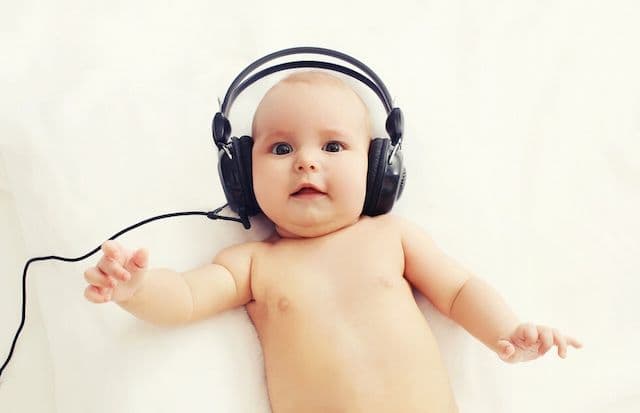For Your Baby, How Loud is Too Loud?
Obie Editorial Team

Inside the womb, your baby is a delicate being. As he or she develops, it’s important that you keep them out of harm’s way. Otherwise, their growth could be inhibited. Preventing any bumps and bruises is important, as is making sure you don’t ingest anything that could be toxic. Similarly, you should be careful about exposing your developing baby to loud noises. Human ears start to develop around week 24 in gestation, and by week 28, they are able to hear as well as they’ll ever be. Of course, their hearing is slightly inhibited by the amniotic fluid surrounding them in the womb, but they can hear as well as adults who are only slightly underwater.
Because your baby’s brand new ears are functioning at 28 weeks, you should be careful about exposing him or her to loud noises. This doesn’t mean you have to forego the radio in your car or even stay home while your friends go to a rock concert. These sounds— unless you’re standing right next to the amplifiers at the Iron Maiden concert—won’t harm the baby’s ears. As a general rule of thumb, if the volume does not bother you, your baby can barely hear it. Sounds louder than 100 decibels are the ones you should avoid. Standing next to a lawnmower, for example, is not pleasant. The sound is loud and you’ll feel the urge to cover your ears. Anything at that volume should be avoided during your pregnancy.
It’s easy for most women to avoid sounds that are over 100 decibels in their daily lives. However, those who work in industrial plants or factories should be extremely careful. Spending an entire eight-hour shift surrounded by the deafening whir of heavy machines will most definitely damage your baby’s eardrums, and it could even cause hearing loss. Though your baby might not go completely deaf, he or she will not be able to hear as well as their classmates, and their ability to hear will degrade more quickly with age. This could cause many inconvenient problems through life, so make sure you make arrangements with your boss if these noises are common in your workplace.
If you’re only around loud noises temporarily, your baby’s hearing will likely be fine. However, spending time in front of a blaring amplifier or machine for more than a few hours could compromise your child’s ability to hear well.
Source: Charlene Krueger et al: Safe Sound Exposure in the Fetus and Preterm Infant. Journal of Obstetric, Gynecologic and Neonatal Nursing Volume 41 Issue 2 Pages 166-170 April 2012







